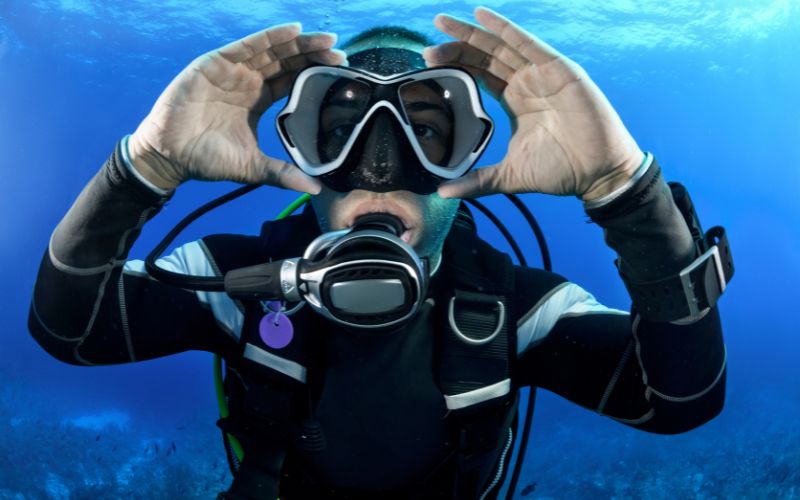Scuba diving is a sport that comes with inherent risks, but with the proper training and safety precautions, those risks can be greatly minimized.
In this blog post, we’ll explore some of the common risks associated with scuba diving and what you can do to stay safe while enjoying this incredible sport.
The risks of scuba diving can be divided into two categories: those that are inherent to the sport and environment and those that are caused by human error. Inherent risks are those that are present regardless of how experienced or careful a diver is. Human error risks are those that occur when a diver fails to follow basic safety procedures.
Table of Contents
Background information
Scuba diving can be a safe and enjoyable activity for people of all ages.
According to the Divers Alert Network, there were 662 fatal diving accidents worldwide in 2018.
This number represents a decrease from 721 fatal accidents in 2017.
While this is good news, it’s still important to know the risks associated with scuba diving and what you can do to minimize them.
The risks of scuba diving
There are a few risks inherent in scuba diving, such as decompression sickness and gear malfunctions.
Risks risks that are presented by the environment such as the marine life and and human error are also important to understand and consider.
Although, these risks do exist they can be greatly minimized by completing a comprehensive training program and staying up-to-date on your dive gear maintenance.
Decompression sickness
Decompression sickness, also known as “the bends,” occurs when dissolved nitrogen bubbles form in the blood and tissues.
This can happen if you ascend too quickly from a dive or if you spend too much time at depth without sufficient decompression stops.
The symptoms of decompression sickness range from mild to severe and can include joint pain, skin rashes, paralysis, and even death.
However, as long as you follow the prescribed dive tables and ascent rates, the risk of decompression sickness is quite low.
Gear malfunctions
Another risk associated with scuba diving is gear malfunction.
Although it is rare for dive gear to fail entirely, it is not uncommon for small problems to occur during a dive.
That’s why it’s so important to thoroughly inspect your dive gear before each dive and to be familiar with how to use all of your equipment.
Most importantly, always remember to carry a spare mask and regulator on every dive.
Human error
Human error risks include things like running out of air, getting lost and entanglement.
These risks can be minimized by following basic safety procedures, such as staying within your dive group, carrying a buddy line and knowing your limits.
Dehydration
Dehydration is a common hazard for scuba divers as they can easily become dehydrated while underwater.
This is why it is important to drink plenty of water before and after your dive.
Ear problems
Changes in pressure can cause barotrauma, which is an injury to the ears or sinuses due to changes in pressure.
This is why it is important to equalize your ears frequently while diving.
Shark attacks
Although shark attacks are rare, they do happen.
Most sharks are not aggressive and will only attack humans if they feel threatened.
There are certain steps that you can take to avoid being attacked by a shark such as avoiding areas where they are known to frequent and not swimming alone.
Marine life
There are many creatures that live in the ocean and not all of them are friendly. stingrays, jellyfish, and sea snakes are just some of the potential hazards that divers may encounter.
It is important to be aware of these risks and take the necessary precautions to avoid them.
Wearing a wetsuit will help protect you from stings and bites.
How to stay safe while scuba diving
Now that we’ve explored some of the risks associated with scuba diving, let’s take a look at what you can do to stay safe while enjoying this thrilling sport.
First and foremost, always complete a comprehensive training program with a certified instructor before diving.
Once you’re certified, be sure to stay current on your training by taking refresher courses every few years.
Additionally, it’s important to heed the advice of your instructor and dive within your limits.
Next, always use quality dive gear that is well-maintained and serviced according to the manufacturer’s recommendations.
Finally, make safety a priority on every dive by using the proper safety signals and carrying emergency equipment.
Final Words
Scuba diving is an exciting and adventurous sport that can be enjoyed by people of all ages.
However, it’s important to remember that there are risks associated with diving.
By following the proper safety procedures and using quality dive gear, you can minimize these risks and have a safe and enjoyable experience.




